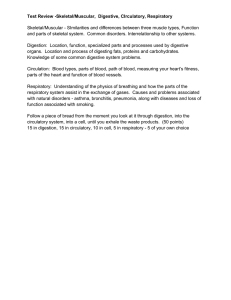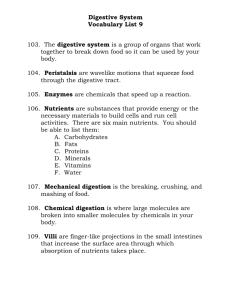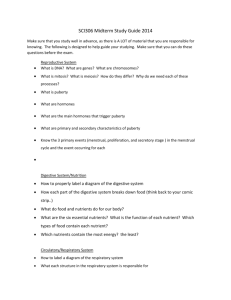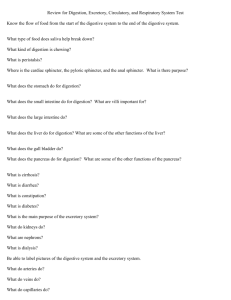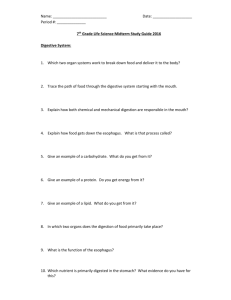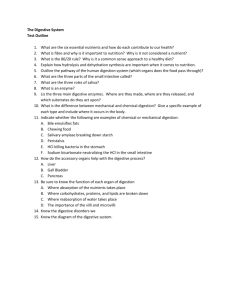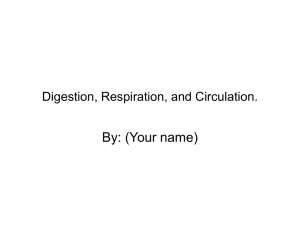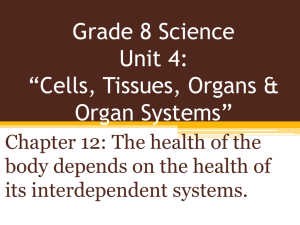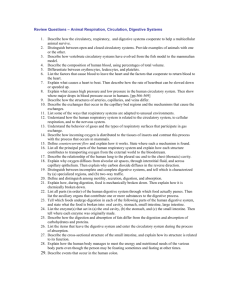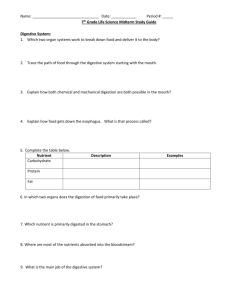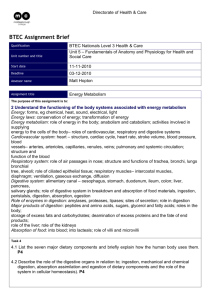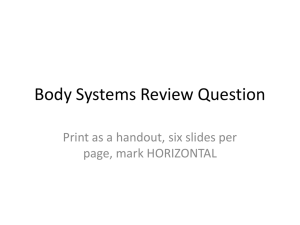DIGESTIVE SYSTEM TEST REVIEW
advertisement
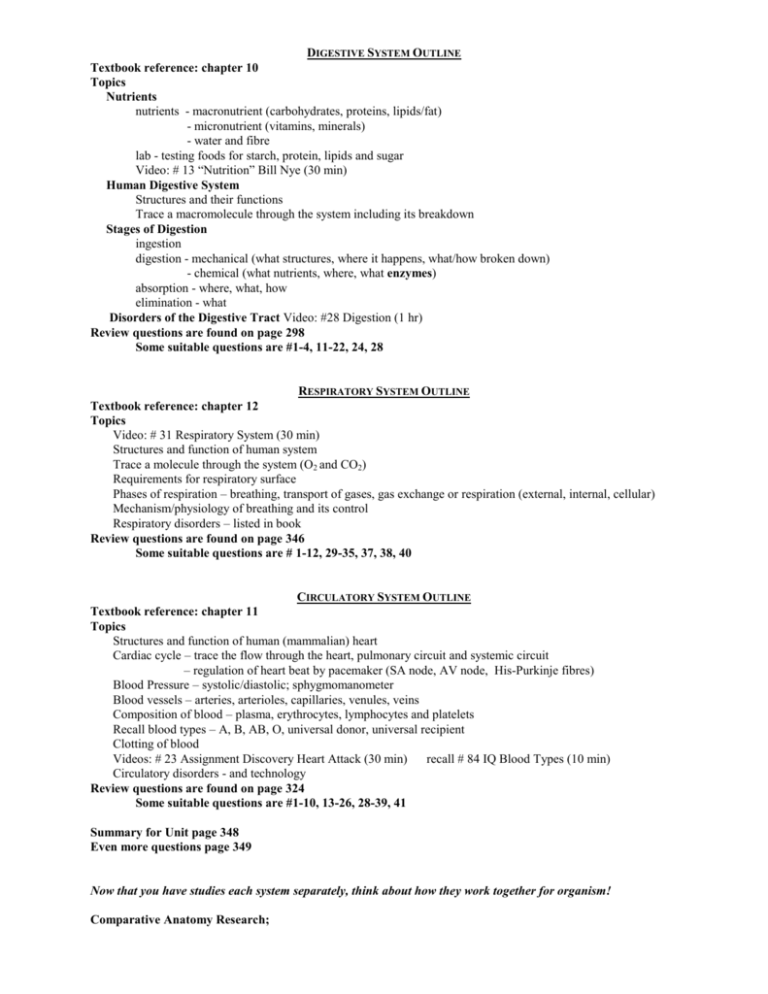
DIGESTIVE SYSTEM OUTLINE Textbook reference: chapter 10 Topics Nutrients nutrients - macronutrient (carbohydrates, proteins, lipids/fat) - micronutrient (vitamins, minerals) - water and fibre lab - testing foods for starch, protein, lipids and sugar Video: # 13 “Nutrition” Bill Nye (30 min) Human Digestive System Structures and their functions Trace a macromolecule through the system including its breakdown Stages of Digestion ingestion digestion - mechanical (what structures, where it happens, what/how broken down) - chemical (what nutrients, where, what enzymes) absorption - where, what, how elimination - what Disorders of the Digestive Tract Video: #28 Digestion (1 hr) Review questions are found on page 298 Some suitable questions are #1-4, 11-22, 24, 28 RESPIRATORY SYSTEM OUTLINE Textbook reference: chapter 12 Topics Video: # 31 Respiratory System (30 min) Structures and function of human system Trace a molecule through the system (O2 and CO2) Requirements for respiratory surface Phases of respiration – breathing, transport of gases, gas exchange or respiration (external, internal, cellular) Mechanism/physiology of breathing and its control Respiratory disorders – listed in book Review questions are found on page 346 Some suitable questions are # 1-12, 29-35, 37, 38, 40 CIRCULATORY SYSTEM OUTLINE Textbook reference: chapter 11 Topics Structures and function of human (mammalian) heart Cardiac cycle – trace the flow through the heart, pulmonary circuit and systemic circuit – regulation of heart beat by pacemaker (SA node, AV node, His-Purkinje fibres) Blood Pressure – systolic/diastolic; sphygmomanometer Blood vessels – arteries, arterioles, capillaries, venules, veins Composition of blood – plasma, erythrocytes, lymphocytes and platelets Recall blood types – A, B, AB, O, universal donor, universal recipient Clotting of blood Videos: # 23 Assignment Discovery Heart Attack (30 min) recall # 84 IQ Blood Types (10 min) Circulatory disorders - and technology Review questions are found on page 324 Some suitable questions are #1-10, 13-26, 28-39, 41 Summary for Unit page 348 Even more questions page 349 Now that you have studies each system separately, think about how they work together for organism! Comparative Anatomy Research;
